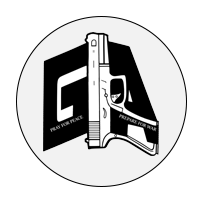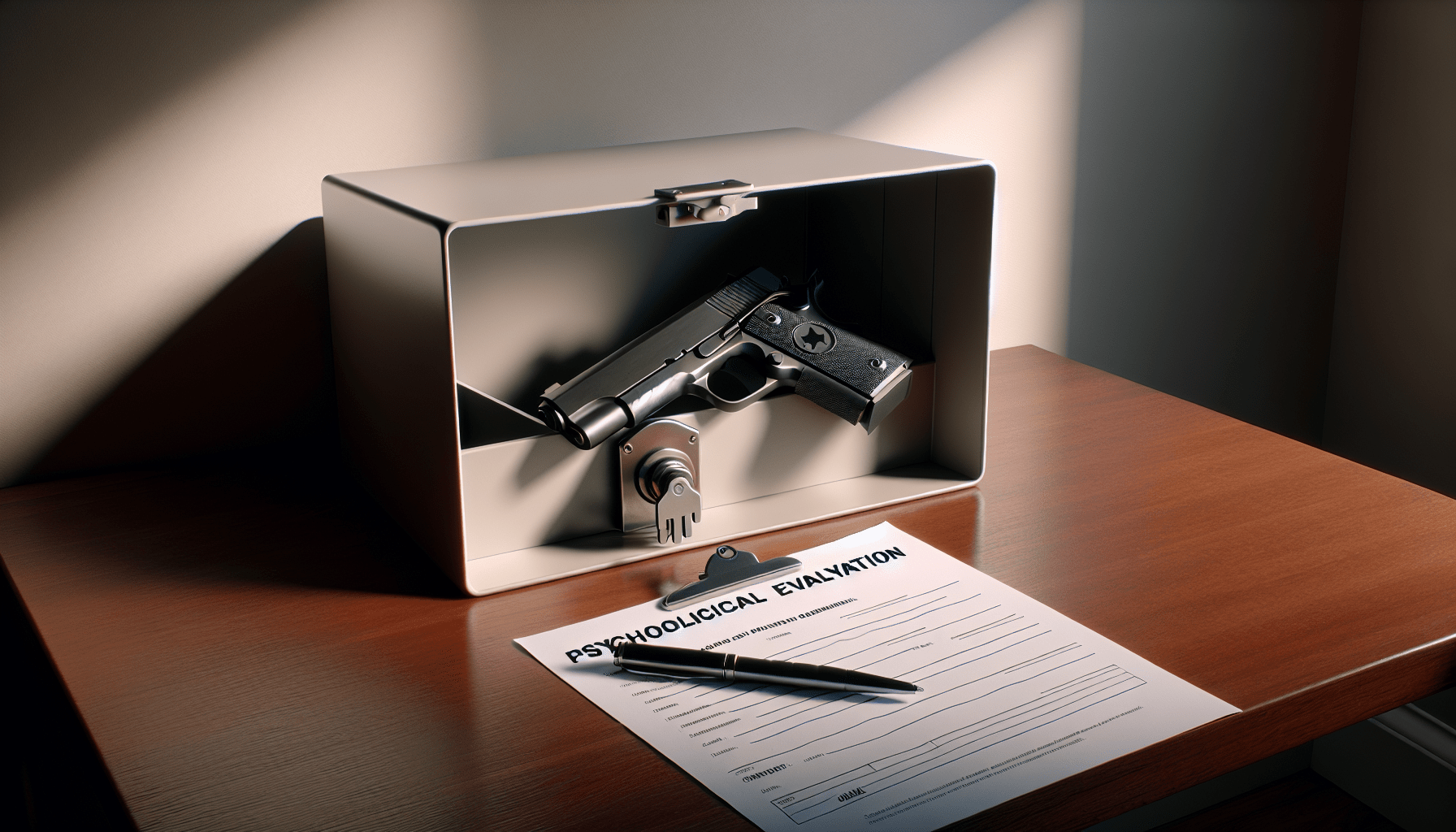Have you ever stopped to think about the relationship between firearms and mental health? It’s a topic that’s not often discussed openly, yet it’s vitally important to ensure both safety and responsibility in our communities. There’s a delicate balance between the rights of individuals to bear arms and the collective responsibility to maintain public safety, particularly concerning mental health issues.

Understanding the Connection Between Firearms and Mental Health
At first glance, firearms and mental health might seem like unrelated subjects. However, they share a significant and often complicated relationship. Mental health conditions can influence an individual’s decision-making and behavior, which directly impacts how responsibly they can handle firearms.
The Importance of Mental Health Awareness
Mental health awareness involves recognizing and understanding various mental health conditions, their symptoms, and their potential impact on behavior. Unlike physical health issues, mental health problems are often invisible and can go unnoticed without proper attention and education. By increasing awareness, we can promote early detection and intervention, reducing the risk of tragic events involving firearms.
Mental Health and Decision Making
One crucial aspect of mental health is its effect on decision-making. Conditions like depression, anxiety, and bipolar disorder can impair judgment, increase impulsivity, and elevate risk-taking behaviors. When firearms are involved, these impairments can lead to dangerous situations, emphasizing the need for responsible gun ownership and mental health care.
Legal Perspectives: Firearms Ownership and Mental Health
Laws regulating firearm ownership and usage vary widely depending on the jurisdiction, yet many include provisions related to mental health. These laws aim to balance an individual’s right to bear arms with the necessity of ensuring public safety.
Federal Laws in the United States
In the United States, federal laws restrict firearms ownership for individuals who have been adjudicated as mentally defective or committed to mental institutions. The National Instant Criminal Background Check System (NICS) is used to enforce these regulations during gun purchases, screening out individuals deemed a risk due to their mental health history.
State-Level Regulations
State laws provide additional layers of regulation. Some states have more stringent requirements, including mandatory waiting periods, thorough background checks, and “red flag” laws that allow temporary confiscation of firearms from individuals considered a danger to themselves or others. These measures can significantly mitigate the risks associated with firearms and mental health issues.
| State | Regulation | Impact |
|---|---|---|
| California | Red flag laws and mandatory waiting periods | Enhances opportunity for intervention and de-escalation |
| Florida | Combination of federal and additional state laws | Seeks a balance between rights and public safety |
| New York | Stringent background checks and reporting | Aims to prevent high-risk individuals from owning firearms |
Promoting Responsible Gun Ownership
Responsible gun ownership is about more than just observing laws. It encompasses education, training, and ongoing commitment to safety practices. Green Line Arms in Pensacola, Florida, is dedicated to fostering responsible ownership through comprehensive training and advanced simulations.
Education and Training
At Green Line Arms, educational programs cover everything from basic firearm handling to advanced tactical training. Knowledgeable staff members work with all experience levels, ensuring that every participant understands the importance of safety, proper handling, and responsible use.
Simulation Experiences
One of the standout features at Green Line Arms is their virtual shooting range. These cutting-edge simulations provide realistic scenarios that teach participants how to react safely and effectively under pressure. By practicing in a controlled environment, you can develop the skills needed to handle firearms responsibly in real-world situations.
The Role of Mental Health Professionals
Mental health professionals play a critical role in identifying and managing conditions that might affect firearm safety. They can provide counseling, therapy, and medications to treat mental health issues, reducing the risk of dangerous behaviors.
Early Detection and Intervention
By identifying signs of mental health problems early, mental health professionals can intervene before the situation escalates. Regular check-ins and mental health screenings can go a long way in maintaining an individual’s well-being, contributing to overall safety.
Collaboration with Law Enforcement and Community Programs
Mental health professionals often collaborate with law enforcement agencies and community programs to provide comprehensive support. These partnerships help create a network of safety that can more effectively address the intersection of firearms and mental health.

Practical Steps for Individuals
If you own firearms and are concerned about mental health—yours or someone else’s—there are several practical steps you can take to ensure safety.
Secure Storage of Firearms
Proper storage of firearms is one of the most effective ways to prevent accidents and unauthorized access. Use gun safes, trigger locks, and other security devices to store firearms securely when they’re not in use.
Regular Mental Health Check-ups
Just like physical health, your mental health needs regular check-ups. Engage with mental health professionals for routine screenings and counseling if necessary. Addressing mental health proactively can avert crises and keep everyone safer.
Open Communication with Family and Friends
It’s important to talk openly with family and friends about mental health and firearm safety. Building a supportive community around you can provide necessary intervention if a situation arises. Those close to you can offer valuable perspectives and may notice changes in behavior that you might miss.
Policy Recommendations
For lawmakers and policymakers, there are several strategies to consider that can help ensure the balance between rights and responsibilities when it comes to firearms and mental health.
Enhanced Background Checks
Strengthening background checks can prevent individuals with severe mental health issues from acquiring firearms. Enhanced checks would include more comprehensive mental health evaluations and better reporting of mental health adjudications.
Mandatory Training and Education Programs
Mandating training and education for all gun owners can significantly improve safety. These programs should include mental health education to help owners recognize signs of mental distress in themselves and others.
Support for Mental Health Services
Increasing funding and support for mental health services can provide better access to care. When individuals can easily access mental health resources, the likelihood of untreated conditions leading to dangerous situations decreases.
Resources and Support
If you’re looking for resources to better understand firearms and mental health, there are numerous organizations and programs that can provide support and information.
National Alliance on Mental Illness (NAMI)
NAMI offers comprehensive resources and support for individuals dealing with mental health issues. Whether you’re seeking information or assistance, NAMI’s programs can provide valuable help.
Mental Health First Aid
This program teaches individuals how to identify, understand, and respond to mental health crises. Mental Health First Aid courses can equip you with the skills needed to assist someone experiencing a mental health problem.
Local Community Health Centers
Many community health centers offer mental health services, including screenings, counseling, and therapy. These centers can be a valuable resource for those looking to maintain mental well-being.
Conclusion
The intersection of firearms and mental health is complex and multifaceted, requiring a thoughtful and comprehensive approach to ensure safety and responsibility. By promoting awareness, providing education and training, supporting mental health services, and implementing effective policies, we can create a safer community for everyone.
If you’re in the Pensacola area and interested in responsible gun ownership, consider visiting Green Line Arms at 1350 South Blue Angel Pkwy. With their commitment to education and safety, they offer a wealth of resources and training to help you become a more responsible firearm owner. Check out their virtual shooting range for a unique and informative experience that can enhance your skills in a safe environment.
Remember, responsible gun ownership includes staying informed about mental health and being proactive about safety measures. With the right knowledge and support, we can all contribute to a safer, more responsible community.




